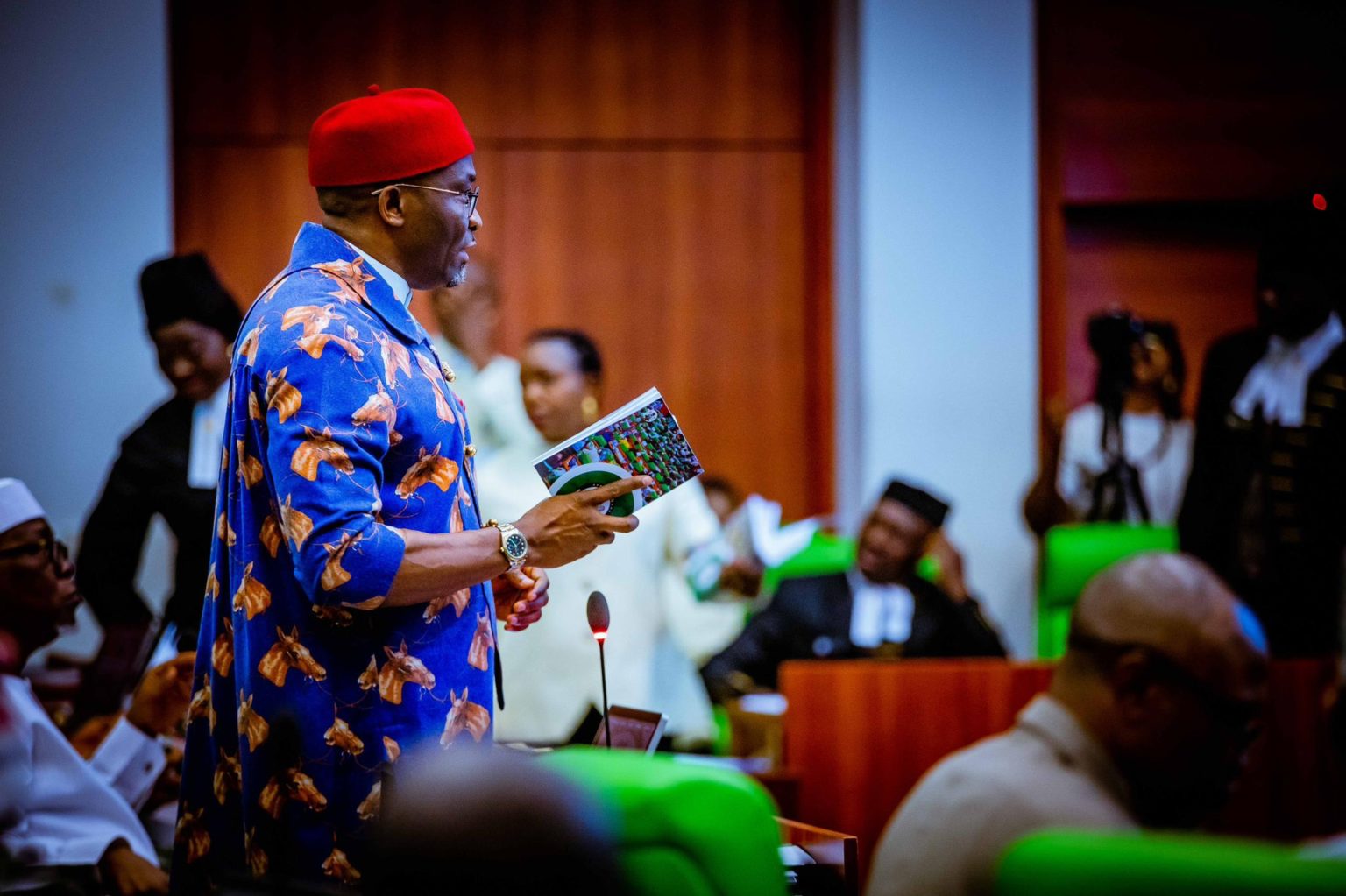By Adeyemi Adekunle
Nigerian House of Representatives has voted unanimously to halve their salaries for six months, a gesture aimed at sharing in the economic hardships currently faced by millions of Nigerians.
This decision, coming amidst growing public unrest over economic challenges and soaring food prices, marks a significant shift in the lawmakers’ approach to addressing national crises.
The motion, which was initially tabled with a different intent, saw a pivotal amendment proposed by Deputy Speaker Benjamin Okezie Kalu.
Kalu’s revised motion, inspired by Representative Isiaka Ayokunle’s call for dialogue over protests, sought to channel legislative earnings directly to alleviating the economic strain on the populace.
Kalu while addressing journalists, emphasized on the urgency and necessity of this sacrifice. “Today, we stand not just as lawmakers, but as Nigerians first. This decision to cut our salaries by 50% is a proof to our commitment to stand with our people in these trying times”.
The average monthly salary of a Nigerian lawmaker is approximately N600,000. With this new directive, half of this amount will be redirected towards efforts aimed at mitigating food insecurity and supporting federal initiatives designed to stabilize food prices. The cumulative contribution from the House of Representatives is expected to provide a substantial financial boost to these programs.
The atmosphere at the chamber was a mix of solemnity and resolve while the discussion was going on . There was a palpable sense of unity, a rare moment where political divides were set aside for the greater good. Lawmakers, many of whom have faced criticism for perceived detachment from the everyday struggles of ordinary Nigerians, appeared earnest in their desire to make a meaningful impact.
Deputy Speaker Kalu, noted the symbolic nature of the pay cut. “This is more than just a financial contribution. It’s a message to every Nigerian that we understand the pain, we feel the hardship, and we are willing to share in the sacrifice,” he said, drawing nods of approval from his colleagues.
Rep Isiaka Ayokunle, whose initial proposal sparked the amendment, echoed this sentiment outside the assembly. “Dialogue and collaboration are the paths forward. We urge those planning nationwide protests to engage with the government. Together, we can find sustainable solutions to these challenges,” he appealed.
As Nigeria grapples with economic turmoil, this move by its legislators is a beacon of hope and a call to action for unity and collective effort. The coming months will reveal the impact of this decision, but for now, it stands as a significant gesture of empathy and shared resolve.




